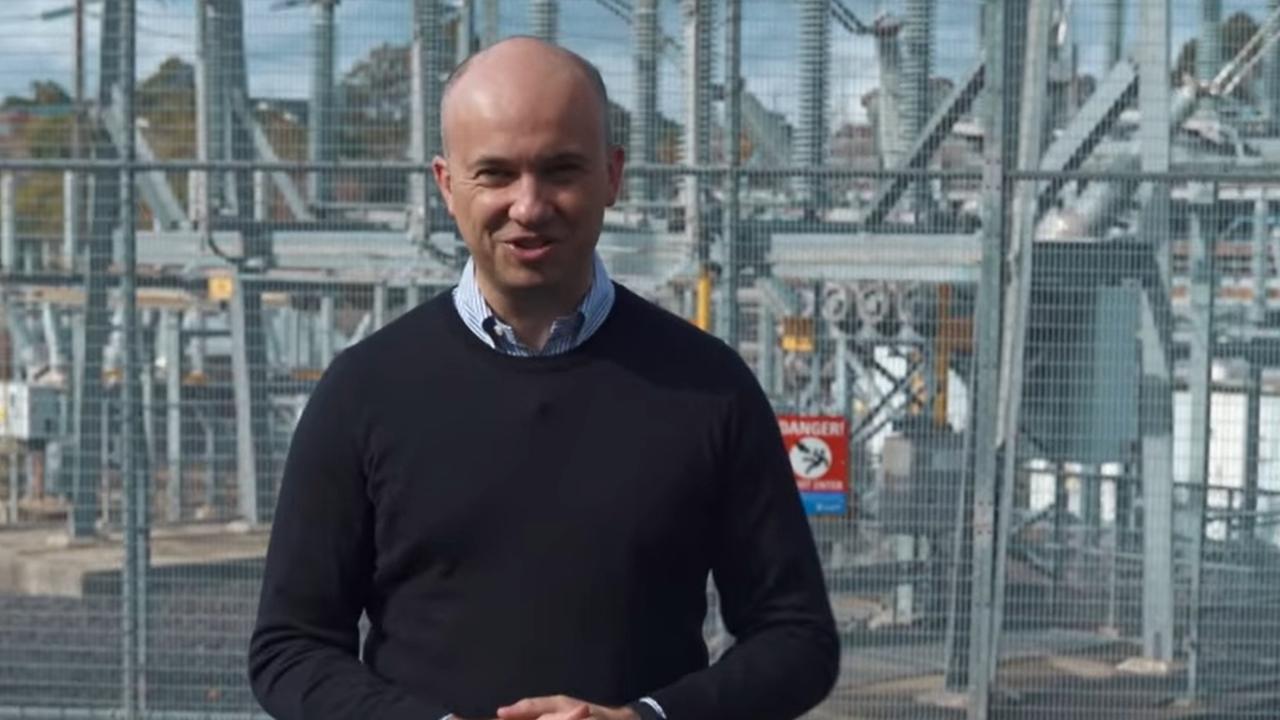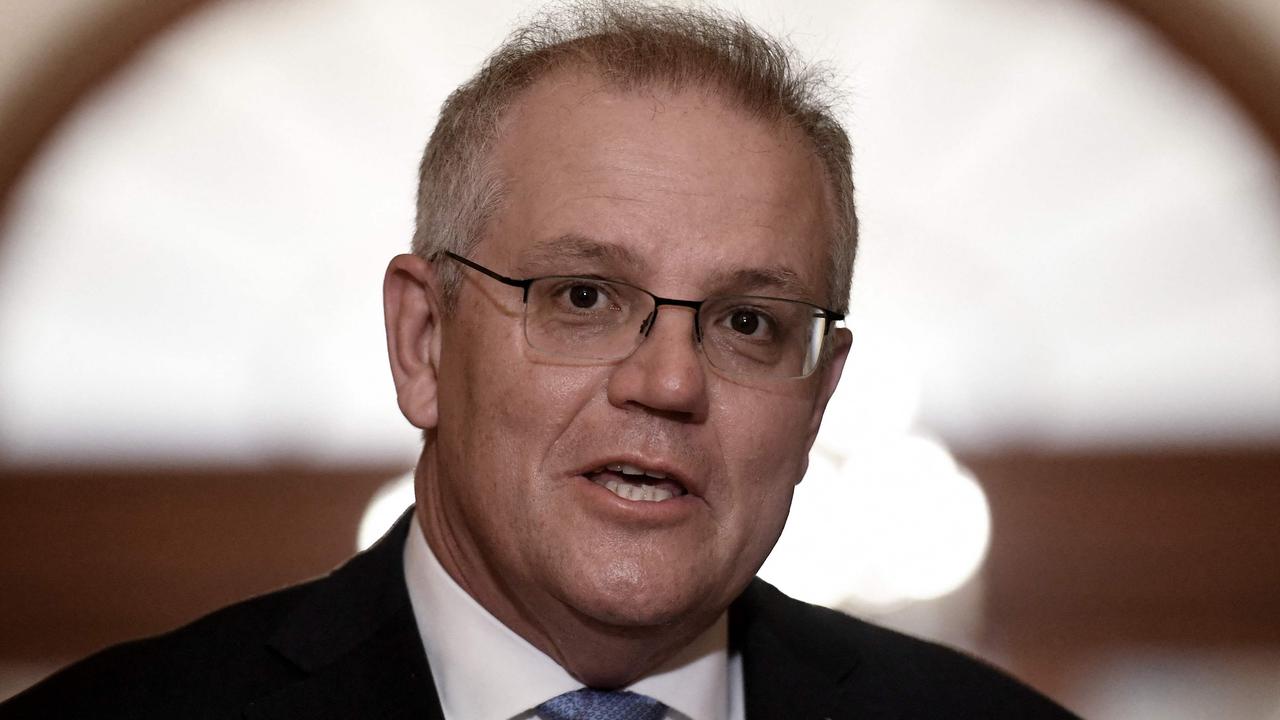NSW reveals new target to reduce emissions by 50 per cent by 2030
New South Wales has made a significant announcement that has put more pressure on Prime Minister Scott Morrison.
New South Wales is being praised for committing to an ambitious emissions reduction target that has highlighted the Federal Government’s inaction.
While Prime Minister Scott Morrison continues to dither about whether Australia commits to a new target ahead of the Glasgow Climate Change Conference, NSW has released a bold new goal to slash emissions by 50 per cent below 2005 levels by 2030.
The state had previously committed to reducing emissions by 35 per cent across the same time period.
It has also backed a net zero by 2050 target, something which the Federal Government is facing increasing pressure to adopt. It has so far only said it would do so “preferably” by 2050.
Australia’s 2030 target is also much lower, at 26 to 28 per cent.
NSW is one of the first states to commit to a 50 per cent reduction by 2030, matching the target for South Australia. The Australian Capital Territory has gone even further, committing to a 65 per cent reduction while Tasmania has already achieved net zero emissions.
Energy and Environment Minister Matt Kean said NSW would achieve the emissions reductions while also slashing household electricity bills by $130 a year, and business bills by $430 a year.
“It will not only set our state up for success in the areas of industry and electricity and electric vehicles, but it will also support agriculture,” he told ABC Radio National’s Fran Kelly.
“We’re putting in place policies that will reduce our emissions but turbocharge our economy.”
NSW’s plan has the backing of the Nationals, in contrast to push-back on climate policy from the Nationals at the federal level.
Asked how he had managed to convince NSW Nationals leader John Barilaro and others to support it, Mr Kean said “quite easily”.
“John Barilaro is absolutely focused on creating jobs, driving investment to the regions, lowering cost of living pressures for families and businesses, and setting our state up for a more prosperous future,” he said.
“John Barilaro is a great leader when it comes to emissions policy. He’s a great leader in the National party, and I think that’s exactly the kind of leadership we need to see at the national level.”
Mr Kean described arguments that climate policy would not impact those in metropolitan areas, unlike regional areas that rely on coal jobs for example, as a “false argument”.
“It’s not one or the other, you can do both. I think that we owe it to our kids to not only take the biggest economic opportunity of our lifetime, but also not leave our country with more bushfires, more droughts and more heatwaves.”
Asked about Queensland senator Matt Canavan’s claims that high coal prices would likely kickstart the expansion of coal mines in Australia, Mr Kean said: “It’s great that Matt Canavan is selling Kodak cameras but it doesn’t count for much when the iPhone is coming and the reality is that the world is changing rapidly and we need to prepare for that reality”.
“I think Australia should go to Glasgow and persuade the rest of the world to take greater action on climate change,” he said.
“I think that we should lead the world when it comes to taking action on climate change, rather than sit back and waiting for the world to persuade us to lead in this area.
“This is the biggest economic opportunity of our lifetime and we will be absolutely mad to miss it.”

NSW target exposes PM’s inaction
Greens leader Adam Bandt said the Liberal government in NSW had exposed the complete failure on a federal level to engage with the 2030 target.
“Delay is the new denial, and NSW’s push for more action by 2030 exposes Scott Morrison and Barnaby Joyce’s 2050 delaying tactic,” Mr Bandt said.
He said Labor’s lack of a 2030 target also let Mr Morrison “off the hook”.
“It’s past time for Labor to step up and help the Greens pressure Scott Morrison,” he said.
Mr Bandt said even NSW’s target would not be enough to save the Great Barrier Reef and many of Australia’s Pacific Island neighbours.
“Meeting the agreement that Australia pledged to in Paris means 74 per cent by 2030,” he said.
However, NSW’s new 2030 target has been welcomed by other green groups including the Australian Conservation Foundation and the Nature Conservation Council of NSW.
“The UK, USA and now NSW all have committed to halving climate pollution by 2030. This stands in stark contrast to the inaction of Prime Minister Morrison and the Federal Government,” Nature Conservation Council Chief Executive Chris Gambian said.
“The Federal Government’s 26-28 per cent target is now so weak it is untenable.”
NSW on track to become trillion-dollar state
Modelling released today by the NSW Government shows it is on track to achieve a 47–52 per cent cut in emissions, largely thanks to wind and solar farms replacing coal burning for power generation. It has managed to do this while still being on track to double its economy.
“With some leadership from the Federal Government it is well within reach for NSW to achieve a 75 per cent reduction in emissions this decade and net-zero far sooner than 2050,” Mr Gambian said.
In a statement announcing the change, NSW Premier Gladys Berejiklian said the state’s new target showed it was serious about setting itself up for the future.
Ms Berejiklian said the state’s Net Zero Plan is expected to attract more than $37 billion in private sector investment into NSW, support more than 9000 jobs and save households about $130 on their electricity bills.
“(It will) help NSW become Australia’s first trillion-dollar state by 2030,” she said.
“This is about putting the policies in place to give industry and investors certainty, not only to protect our planet but to future-proof our prosperity and way of life.”
Deputy Premier John Barilaro said regional communities will reap the rewards of the new industries set to emerge over the coming decades.

“Whether it is in modern manufacturing, minerals or agriculture, regional NSW is home to the skills, infrastructure and resources needed as the demand for low emissions technologies like batteries and hydrogen grows,” Mr Barilaro said.
“The entire state will benefit from the economic and employment opportunities in low carbon technologies, and we will continue to take action in a way that delivers more jobs and more investment for people in the city and in the bush.”
Energy Minister Matt Kean said NSW was on track to double its economy and halve its emissions by 2030.
“We can be a renewable energy super power and as global demand for low carbon products and investments grows, the fortunes of the state are increasingly tied to the fortunes of our planet,” Mr Kean said.
“In NSW, we also aren’t just setting targets. As a result of our policies, the state’s emissions are projected to fall by 47-52 per cent on 2005 levels by 2030 under independently peer reviewed modelling.”






